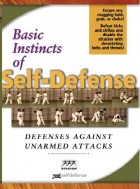About a month ago [in March of 2012], in Vermont, Melissa Jenkins, mother of a 2-year old boy, was lured out of her house and killed, for fun.
She was killed by a couple, a husband and wife. The husband, Allen Prue, used to plow Jenkins’ driveway. He also had repeatedly asked her out on dates, which she declined. According to her friend, Melissa Jenkins had been “uncomfortable” around the man (see the story here).
On the night she was killed, the wife, Patricia Prue, had called her and said the couple’s car had broken down half a mile from her home and they needed her help.
She listened to her instinct, she heard it, but she didn’t act on it
Now, the educational part of the story, for which I will quote from the Burlington Free Press:
“Before driving out to meet them, Jenkins called longtime friend … and said she `wanted someone to know what was going on.’ She told [the friend] about the `weird call’ she received from the couple…. She still had their business card [for their snow-plowing business] and asked the friend to write down the pertinent information: The name Prue, the phone number and address.” (You may read the whole sickening story here.)
So, she had a bad feeling about the man, the call seemed weird, she was suspicious enough to alert her friend, and yet she went into the night instead of politely telling the caller that she can’t leave the house because of any invented reason (her child is sick, her car broken, whatever…), but that she will gladly call a towing service for them.
Why she had not done this? Excessive politeness, I presume. She didn’t want to offend these people so she ended up dead and her 2-year-old is an orphan now.
In typical victims the fear of offending overrides their healthy instincts. Don’t want to be a victim? Act on your instinct or, to put it bluntly, on your fear — the politeness and “social norms” be damned. Seek a tactically advantageous position. Use distance and obstacles. Don’t worry about offending — if you make yourself difficult to attack, you are not going to be sorry. Listen to your fear, and act on it!
Self-defense tip from Thomas Kurz, co-author of Basic Instincts of Self-Defense and author of Science of Sports Training, Stretching Scientifically, and Flexibility Express.
Self-Defense Moves
For your defense moves to work under stress they must be based on your natural, instinctive reactions, require little strength and limited range of motion, and be proven in fighting experience.To learn how your natural reactions can instantly defeat any unarmed attack, see the video Basic Instincts of Self-Defense.
Defend Against Weapons
To defend against weapons you have to know how they are used. Also — every stick has two ends … the weapon of attack may become a weapon of defense in your hand …To learn how the typical street weapons (club, knife, razor) are used by an experienced streetfighter and how to practice with them, see the video Self-Defense: Tools of Attack — Club, Hatchet, Blackjack, Knife, Straight Razor.
Mental Toughness
Staying cool under pressure is more important for self-defense than being physically fit and technically skilled. If you can’t control your mind what can you control?To learn mental techniques that let you calmly face any threat and act rationally in the heat of a fight, click here.
For a complete list of our products, click here.








Very wise advice! Many would have spared themselves much grief if they followed it.